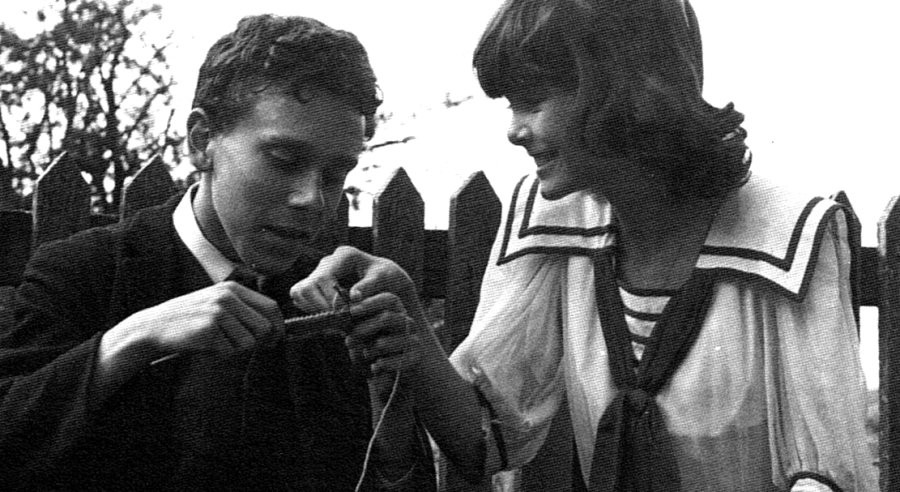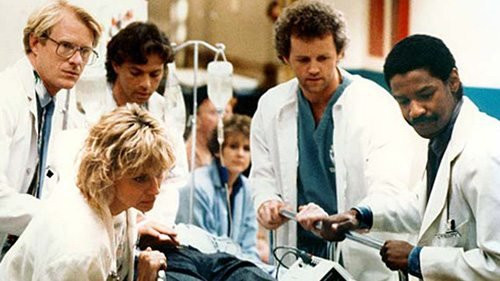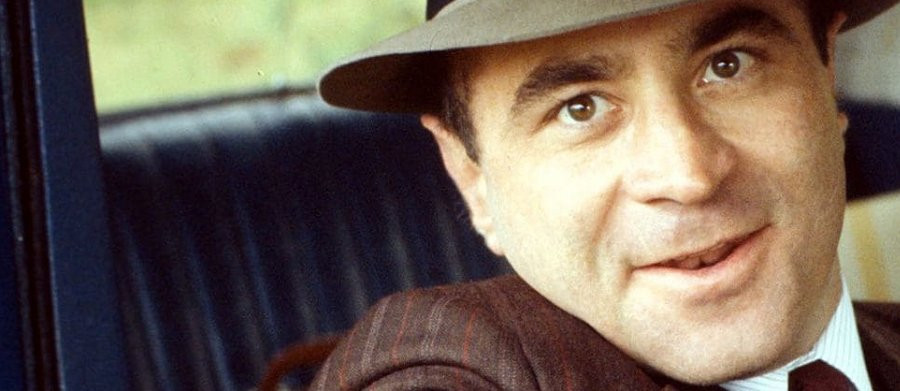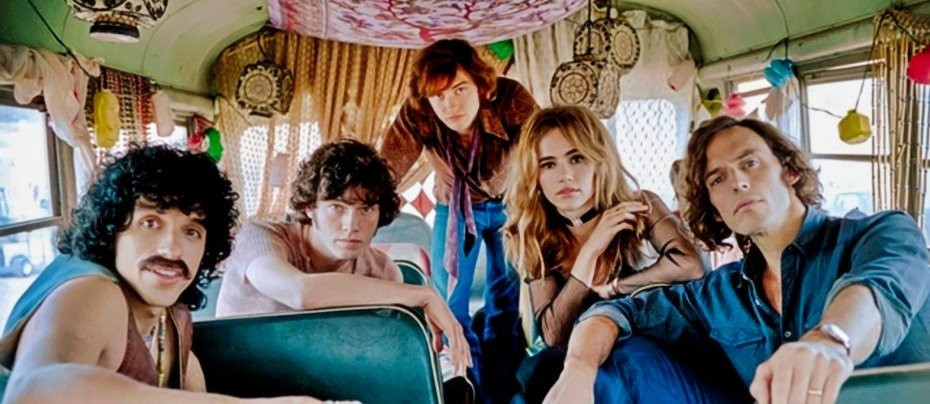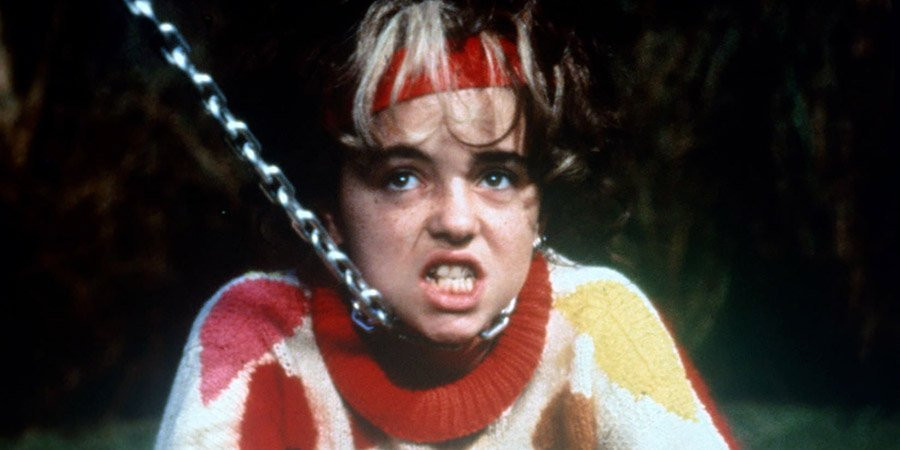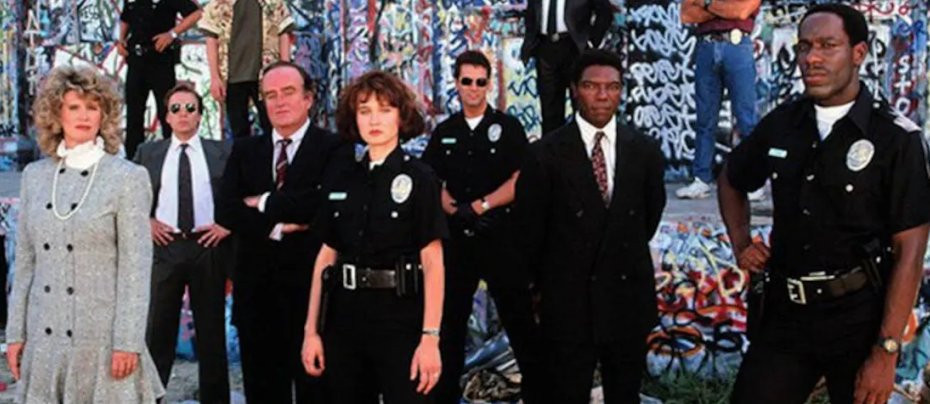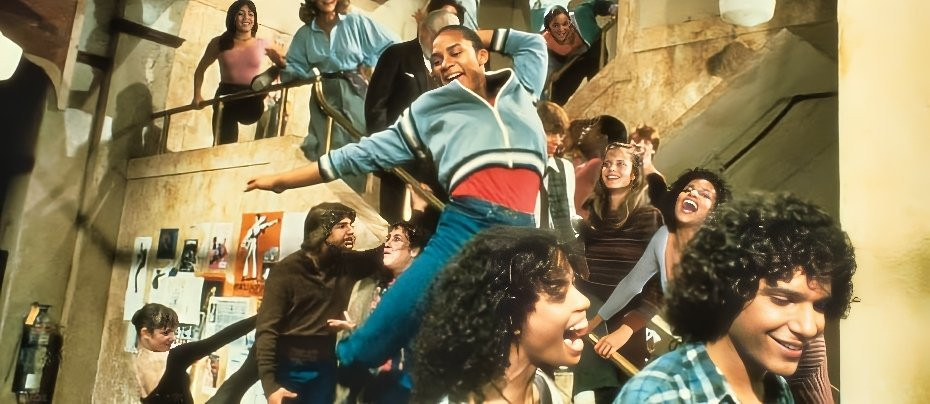
Fame
1982 - United States“Fame costs and right here’s where you start paying…in sweat!”
Fame, the 1982 television series, was a vibrant and culturally resonant show that captured the imaginations of viewers across the United States and beyond. Inspired by the 1980 film of the same name, Fame explored the lives of students and faculty at the New York City High School for the Performing Arts. The series became a cultural phenomenon, resonating with a generation eager to see their hopes, dreams, and struggles reflected on the small screen.
At its core, Fame was a story about young talent striving for success in the competitive world of performing arts. The show featured a diverse cast, each character with their unique background and set of challenges. Characters like Coco Hernandez (Erica Gimpel), Leroy Johnson (Gene Anthony Ray), and Doris Schwartz (Valerie Landsburg) embodied the dreams of countless young artists. The faculty, including the stern yet compassionate Lydia Grant (Debbie Allen), the ambitious music teacher Benjamin Shorofsky (Albert Hague), and the dedicated drama teacher Elizabeth Sherwood (Carol Mayo Jenkins), provided guidance and mentorship, reflecting the show's underlying message about the importance of support and perseverance in the pursuit of one's dreams.
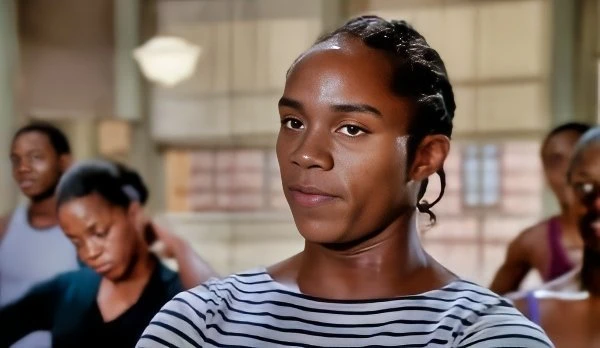
The early 1980s were a time of significant cultural shifts. The aftermath of the 1970s' political upheavals, the rise of MTV in 1981, and the burgeoning hip-hop culture influenced the arts and entertainment landscape. There was a renewed focus on individuality, self-expression, and the breaking down of traditional barriers, especially those related to race, gender, and socioeconomic status.
Fame mirrored these changes by showcasing a multi-ethnic cast and addressing issues such as racism, class struggles, and the quest for identity. The character of Leroy Johnson, for instance, was a young African American dancer from a disadvantaged background, whose raw talent and defiance against systemic prejudice resonated with the show's audience. Coco Hernandez's struggles with cultural identity and her fierce determination to succeed echoed the broader conversations around race and representation in media.
One of the hallmarks of Fame was its willingness to tackle social issues head-on. The show did not shy away from controversial topics such as drug addiction, poverty, and the pressures of fame. Episodes often delved into the personal lives of the characters, exposing the stark realities behind the glamour of the performing arts. The character of Bruno Martelli (Lee Curreri), a talented but introverted pianist, faced pressure from his working-class family to pursue a more stable career, highlighting the tension between following one's passion and conforming to societal expectations. This honest portrayal of the characters' struggles made Fame stand out from other shows of the time, offering a more nuanced and empathetic view of the challenges faced by young artists.
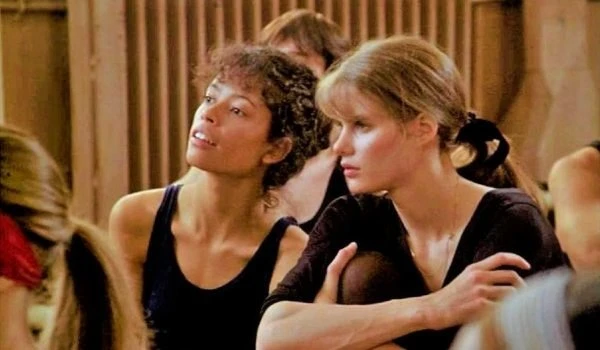
Several characters were carried over from the movie, played by different actors. Irene Cara portrayed Coco Hernandez in the film, actor Paul McCrane had originally played Montgomery McNeil, but P.R. Paul portrayed Montgomery for the series. English teacher Elizabeth Sherwood was played in the film by actress Anne Meara. The character Doris had her name changed from Doris Finsecker (portrayed by Maureen Teefy) to Doris Schwartz (Valerie Landsburg). The character of Ralph Garci (Tommy Aguilar), played in the film by Barry Miller, appeared only in the pilot. Two new characters were introduced in the TV series: cello player Julie Miller (Lori Singer), and actor-comedian Danny Amatullo played by Carlo Imperato. Most viewers were able to identify with at least one of the students.
Music and dance were not merely elements of Fame; they were the lifeblood of the show. The opening theme song, "Fame," performed by Irene Cara, became an anthem for aspiring artists everywhere. Each episode featured elaborate musical numbers and dance routines that highlighted the characters' talents and their personal growth. The series often incorporated contemporary music styles, from classical and jazz to rock and pop, reflecting the eclectic tastes of the 1980s audience. A chart-busting soundtrack album, The Kids from “Fame”, was released in 1982 and featured Top Ten hits Hi Fidelity and Starmaker which reached numbers 5 and 10 (respectively) in the UK hit parade. The album itself was the second biggest seller of the year in Britain and Ireland, beaten only by Barbra Streisand’s Love Songs album but inexplicably it only reached number 146 in the USA.
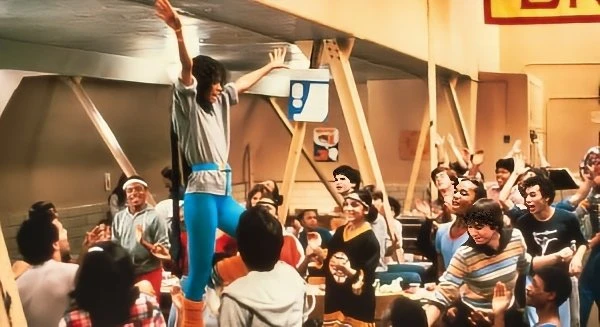
The dance scenes, choreographed by Debbie Allen, were particularly impactful. Allen's dynamic and innovative choreography brought a sense of realism and urgency to the show, emphasizing the hard work and dedication required to succeed in the performing arts. Allen won Primetime Emmys for Outstanding Achievement in Choreography in 1982 and 1983 before going on to choreograph 10 consecutive Academy Award ceremonies and garnering 17 Primetime Emmy wins from 26 nominations.
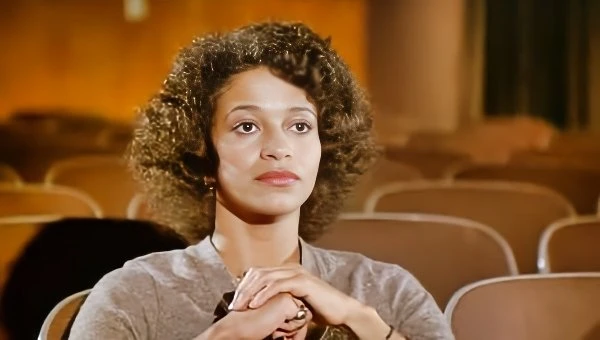
The show's realistic portrayal of the blood, sweat, and tears behind artistic success resonated with audiences. Viewers were drawn to the characters' passion, resilience, and camaraderie. The series' focus on perseverance in the face of adversity provided inspiration and hope, particularly to young people who harboured dreams of their own. It’s ability to blend entertainment with education also contributed to its appeal. Through its characters' journeys, viewers learned about the disciplines of music, dance, and acting, as well as the importance of hard work and dedication. This educational aspect, combined with compelling storytelling and high-energy performances, made Fame a unique and memorable series.
Fame left a lasting legacy on both television and popular culture with a significant impact on the fashion of the decade. There was a surge in popularity for clothing that reflected an active and sporty lifestyle such as legwarmers and headbands among the youth. The show also introduced the layering of clothes and the off-the-shoulder look, which became synonymous with the 1980s fashion scene. Bright colours and bold patterns influenced mainstream fashion to embrace more daring choices.
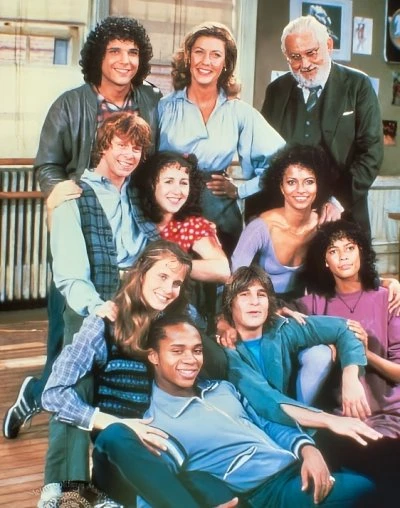
Moreover, Fame was a pioneer in its representation of diversity on television. At a time when most TV shows featured predominantly white casts, Fame showcased a broad spectrum of racial and ethnic backgrounds, helping to pave the way for more inclusive storytelling in the years to come.
The show's influence can be seen in later series such as Glee and High School Musical, which similarly blend performance with personal drama and social commentary. It inspired countless young people to pursue careers in the arts and demonstrated the power of television to address important social issues. Even the lyrics to the show's theme song carried a message of hope and perseverance, reinforcing the idea of achieving greatness, leaving a lasting impact and being remembered. "I'm gonna live forever, baby remember my name."
Fame was more than just a television series; it was a cultural touchstone that captured the hopes, dreams, and struggles of a generation. Its blend of diverse characters, compelling narratives, and unforgettable musical performances created a lasting impact that continues to be felt in the world of entertainment.
Seen this show? How do you rate it?
Seen this show? How do you rate it?
Published on May 29th, 2024. Written by Laurence Marcus for Television Heaven.


